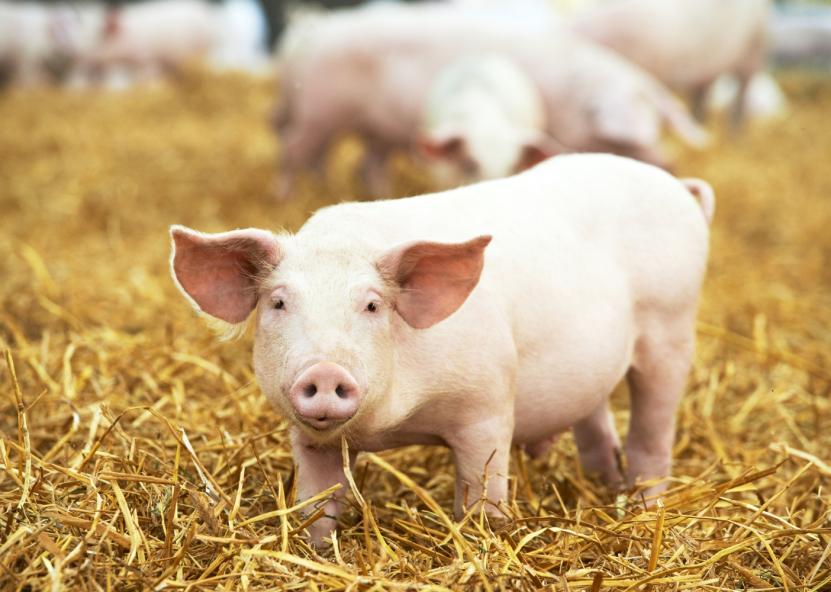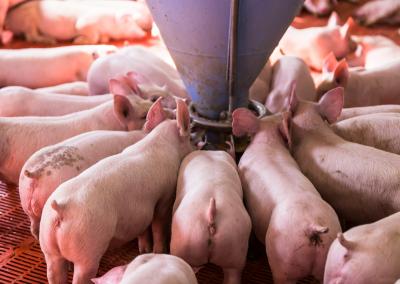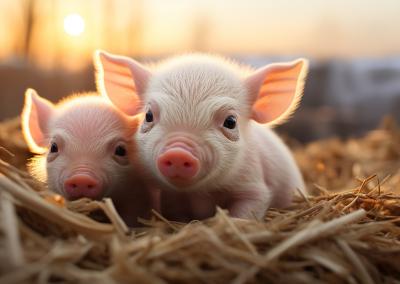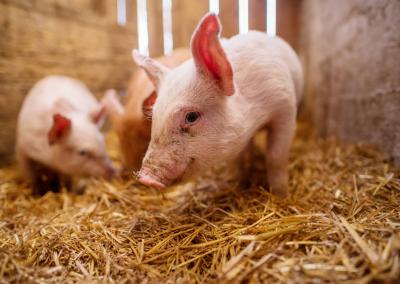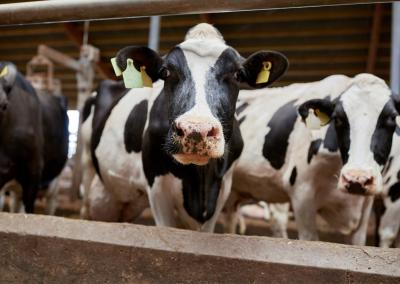Algis Baravykas: Castration without pain - more debate than real alternatives
An anti-castration performance in Vilnius. The theatrical depiction of "pools of blood" sparked a public debate on animal welfare and pig farming practices. We talk to Algis Baravikas, Director of the Lithuanian Pig Breeders Association, about the situation in Lithuania.
– How do you feel about today's performance?
We don't have many comments on the performance. What we saw – is a theatrical spectacle that does not reflect reality. „Blood puddles“ do not reveal the real procedure – if piglets are castrated until 3 days of age, the blood practically does not flow. It is a quick intervention, the wounds heal within 2–3 days and there are almost no complications. The piglets are lively, play, rest and recover quickly after the procedure.
– What are the current legal provisions governing castration in Lithuania?
Neutering in Lithuania is carried out in accordance with all EU and national legislation. According to the EU regulation, if the piglet is more than 7 days old, an anaesthetic must be applied. Lithuanian pig farmers comply with this requirement. Most piglets are castrated before the age of 3 days, when the procedure is not yet regulated as compulsory pain relief.
– Why is castration still practised? Are there alternatives?
Male piglets are castrated to avoid the smell of boar in the meat when they reach maturity. Castrated piglets – this is a market demand as slaughterhouses do not buy uncastrated piglets. The odour caused by androstenone, skatole or indole is unpleasant to humans. Sometimes it is strong, sometimes it is barely perceptible, but consumers are sensitive to it. An alternative would be medical castration – immunovaccine. Farms have the technique and the know-how, but this method is not acceptable to consumers and has not caught on.
– Would you support the idea of abandoning castration without anaesthesia?
We should be talking about an EU-wide solution, not individual statements or attacks. There is currently no single EU-wide protocol for anaesthesia or castration. Vets may use various methods of anaesthesia, but each has its own drawbacks in terms of impact on animal welfare, meat quality or even human health. Therefore, there is no solution yet.
– How do you feel about the actions of public organisations, such as the "Empty Cages" NGO?
Organisations raise important issues, but their approach is often confrontational. We would like to see a constructive dialogue where decisions are based on scientific evidence and shared principles. The issue of castration should be addressed by the EU as a whole, not by individual countries or individual farms. As for the survey they publish, which states that 77% of consumers are in favour of castration with anaesthesia, we cannot verify whether this is a truly reliable study. Such figures may be manipulative.
– Is there any consideration being given to abandoning castration altogether in Lithuania?
Some farms are thinking about it, but until there is a consensus across the supply chain - from producers to processors to consumers - it is a difficult path. But we are watching how this is developing in other countries and we are learning. We need a scientific basis, a unified EU approach and decision-making through partnership rather than pressure.![]()



































































































